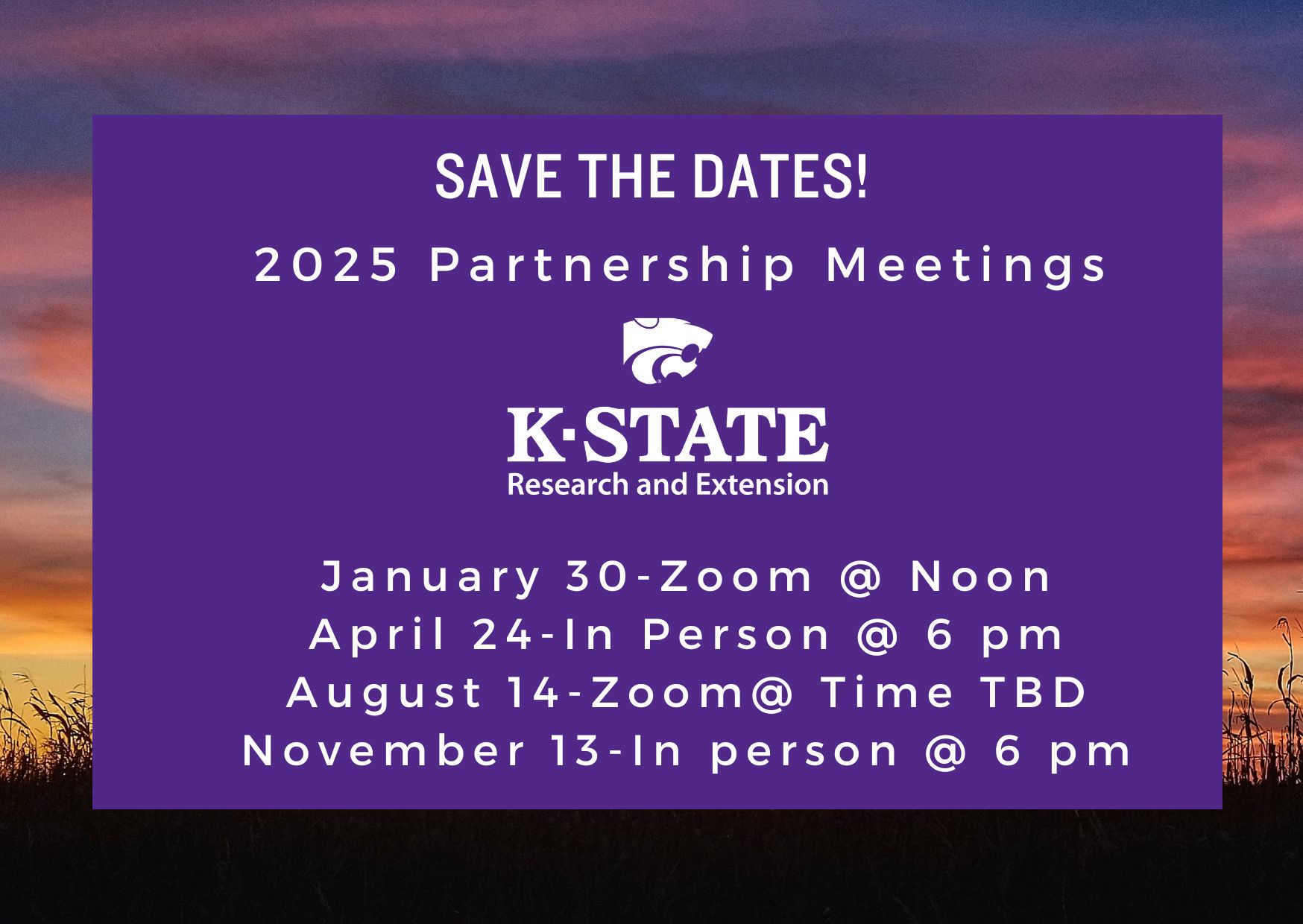Board Excellence Newsletter, January 2025
- From the director for extension: What's in a Name?
- Board member orientation.
- Local unit staff recognized with awards.
- SEAC election results are in.
- Collecting and reviewing data helps KSRE.
- PDC Resources: Alternative Meeting Formats.
- Program spotlight: Stay Strong, Stay Healthy.
- Partnership meeting save the dates.

What's in a Name?
When new strategic initiatives are launched, the names used to describe them can be confusing. The goal of this article is to define some important terms.
Engagement describes universities working with the people we serve to improve their lives, livelihoods and communities. It is what we do in extension.
Extension refers to our Cooperative Extension Service. It is a federal, state, and local partnership with professionals and volunteers that specialize in engagement.
Next-Gen K-State is the strategic plan that K-State is following. A key part of the plan is that it prioritizes engagement. It states that engagement should be conducted by the entire university—not just extension. That “entire university” is the new element of this strategic plan not found in past plans.
Delivering on the Promise was the name of discussion meetings held across the state to gather input from our stakeholders. These meetings identified issues that are important to Kansans. This data will help determine how we implement the engagement portion of the Next-Gen K-State strategic plan.
K-State 105 is the program we use to encourage and support entrepreneurial, business and economic development in our 105 counties.
How can you use this information?
Having a general knowledge of our university’s initiatives can help you support your agent team. For example, let’s say an agent is tackling an issue that is outside the scope of our typical extension expertise. Because you know that the Next-Gen K-State strategic plan encourages all K-State professionals to do engagement, you could guide that agent to look at the rest of the university for the needed expertise. Or, if there is potential for a new business or other economic development in one of your communities, you could encourage your agent to see if K-State 105 could help.
Congratulations on your election to your local extension board. A statewide board member orientation will be held via Zoom on Monday, Jan. 20 at 6:30 p.m. The training will take less than one hour.
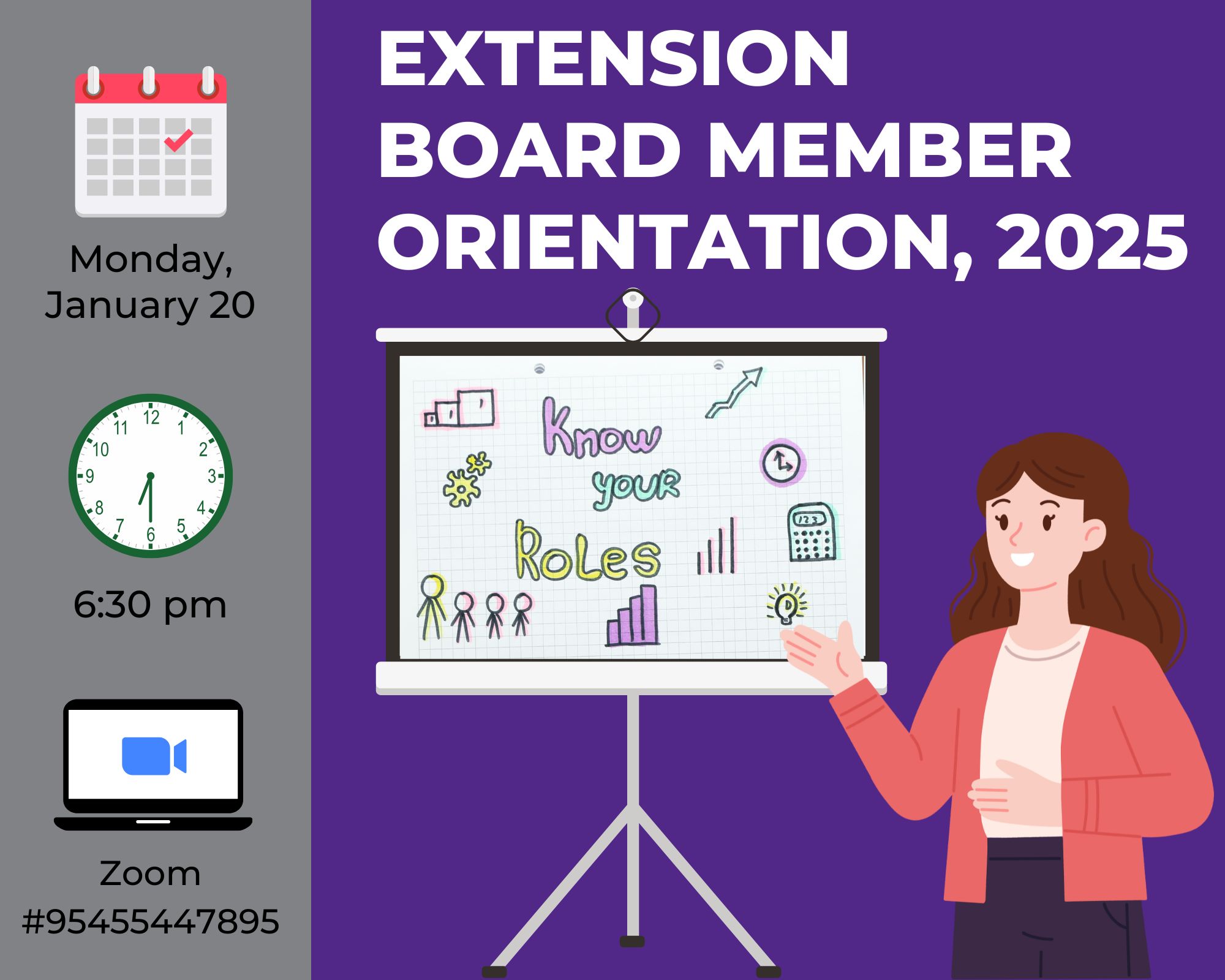
Being a board member comes with many roles and responsibilities. This session will provide you with resources to help you succeed as a board member.
New and continuing board members are welcome and encouraged to participate. Please plan to join in. The Zoom link will be https://ksu.zoom.us/j/95455447895.
Each year at our annual conference, faculty and staff are recognized for outstanding programming and contributions to extension excellence.
Agents and staff from local units recognized in 2024 include:
- Matthew McKernan, Sedgwick County,
Outstanding Extension Agent. - Carrie Lance, Wildcat District,
Standout New Agent. - Denise Bindrum, Sedgwick County,
Outstanding Local Unit Staff Member. - Sara Sawer, Sedgwick County,
Builder Award. - Amanda Clasen, Southwind District,
Kansas Community Empowerment Partner.
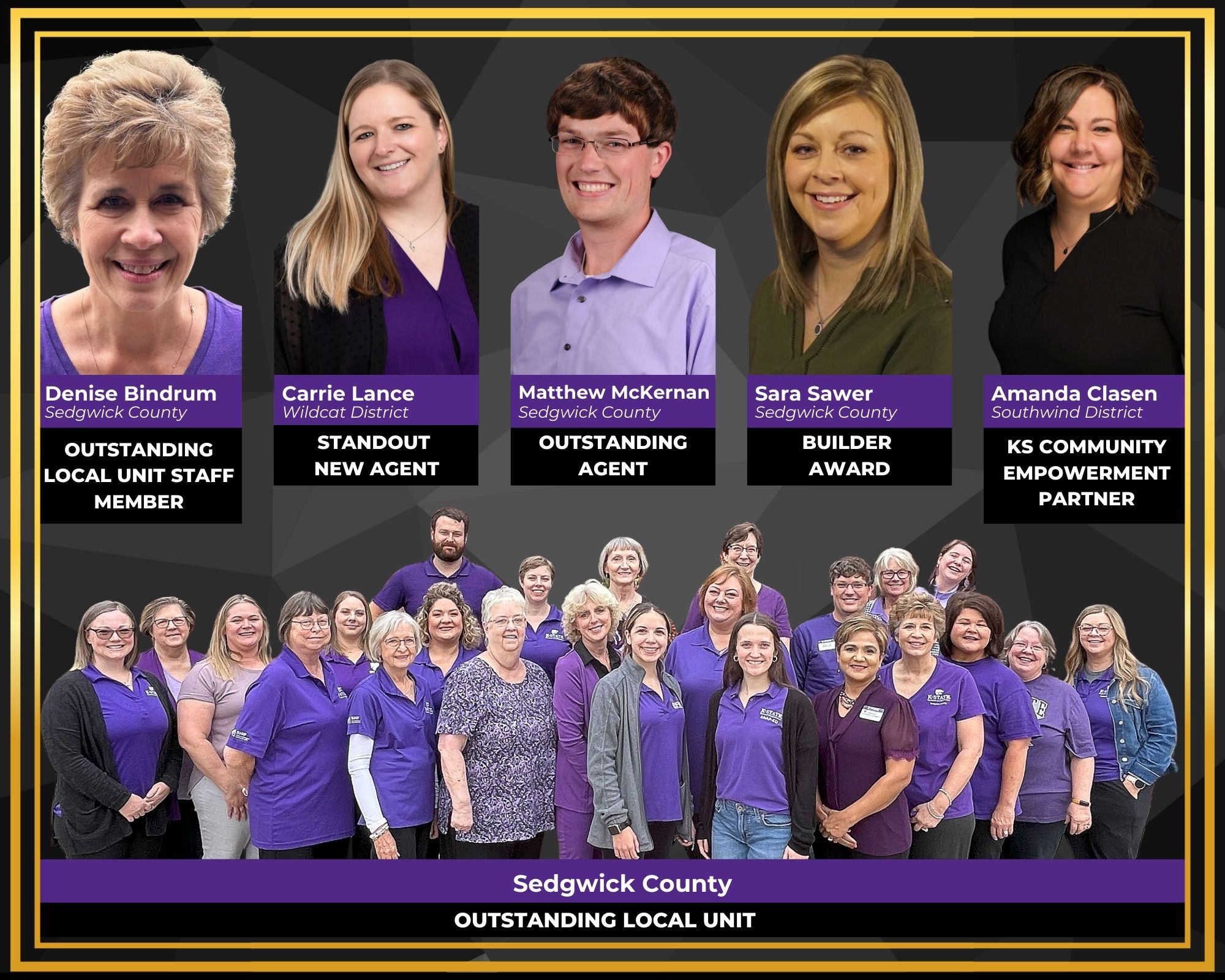
The Sedgwick County extension team was recognized as the Outstanding Local Unit of 2024.
Sedgwick County extension has been making significant and commendable efforts to provide education and programming to a diverse range of populations in their community. The staff demonstrates a holistic and proactive approach to community engagement, financial management, professional development and resource optimization. Their ability to recruit and retain volunteers, along with their success in securing grants and funding, highlights their commitment to sustaining meaningful impact despite budgetary challenges. We are happy to recognize their dedication, adaptability and collaborative spirit.
Congratulations to the new State Extension Advisory Council (SEAC) members! The nominations for SEAC are appreciated, as is your time and dedication to K-State Research and Extension.
The SEAC is made up of 21 members from local units across the state who serve three-year terms. They meet twice a year: in February and August.
These members represent the local unit partnership that works with K-State Research and Extension’s administration. They provide advice, suggestions and ideas to help solve complex issues that are prevalent across the state. They also serve as extension advocates at the state level and sometimes get special assignments related to extension objectives.
- Eastern Region
- Dawn Rumford, Frontier District.
- David Todd, Leavenworth County.
- Central Region
- Janell Harman, McPherson County.
- Eric Scott, Pratt County.
- Western Region
- Jan Stevens, Ford County.
- One position remains open. Another board member from the Western Region can be appointed.
- Metropolitan Units
- An unconfirmed person has expressed interest in being appointed.
These folks will begin their new roles at the next SEAC meeting in Topeka on Feb 17-18.
Again, congratulations and welcome to the new State Extension Advisory Council members!
Because K-State Research and Extension is a recipient of federal funding, the United States Department of Agriculture’s National Institute of Food and Agriculture requires that we collect the race, ethnicity and gender information from our program participants. Consequently, agents are required to ask program participants to self-report this information and submit client contact data through quarterly effort reports in January, April, July and October.
There are several ways staff can collect the data:
- Participants can be asked to complete a paper form during the program event.
- Data can be collected via electronic survey.
- It can be collected when participants register for a program.
An online survey completed during registration is the recommended method for collecting the information. No matter how the information is collected, participants can choose not to respond, but it is the extension professional’s responsibility to ask.
Each year, we ask local unit staff and board members to review parity data to determine whether local extension programming is reaching a representative population compared to their census data.
A parity report for the 2024 program year was sent to your local unit in early January. Reviewing the parity report is one step in completing the annual civil rights check-up for your unit. If there are certain demographics that your unit is not reaching, the staff and board should engage in discussion about possible barriers facing those audiences and how you might remove the barriers to create equal access to extension programs and services.
Civil rights compliance is important so that we can continue to secure federal funding for extension.
Program Development Committee (PDC) members work in partnership with extension agents to identify needs and target programs to meet local needs.
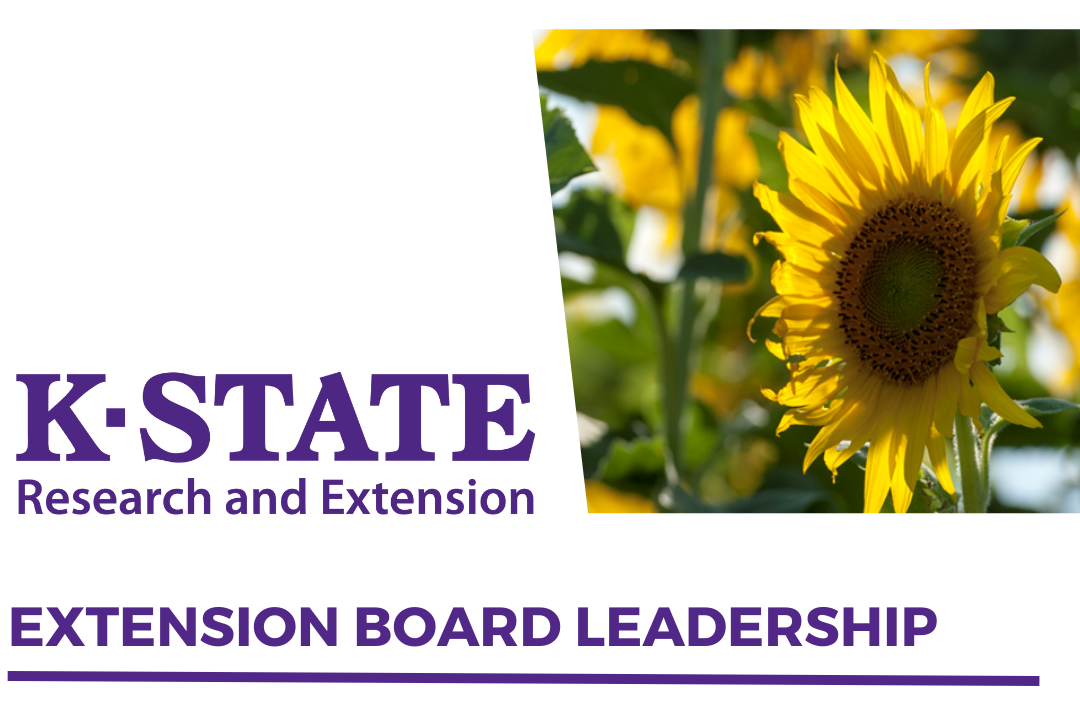
While the traditional PDC meeting format is face-to-face, that is not always feasible. In extension districts, for example, members often cite travel time as their reason for missing a meeting.
Agents may consider using alternative meeting formats to accommodate PDC members’ needs. Options include individual consultations, conference calls, video calls, email, electronic polls and small group discussions. Because each option has strengths and challenges, these formats require careful planning to keep PDC members interested and involved.
Check out the “Alternative Meeting Formats” handout (PDF) and other helpful information on the Extension Board Resources website.

Despite compelling research about muscle strengthening benefits, most older adults —particularly women— do not currently perform these exercises. Their reasons include fear of injury, lack of experience lifting weights, lack of access to an experienced professional, and few community programs.
Many adults experience a decline in muscle mass and strength, leading to decreased mobility, increased risk of falls, and a lower quality of life. However, regular physical activity and muscle-strengthening exercises can significantly improve their physical health.
Stay Strong, Stay Healthy (SSSH) is an eight-week/16-class program intended to reduce the number of falls among older adults and increase their ability to continue living independently by improving their balance, flexibility and muscle and bone strength.
Each hour-long class session includes a warmup, eight targeted strengthening exercises, and a cooldown/stretching time.
Kansas currently has 43 certified instructors. Last year, K-State Research and Extension agents provided SSSH courses that reached 358 participants.
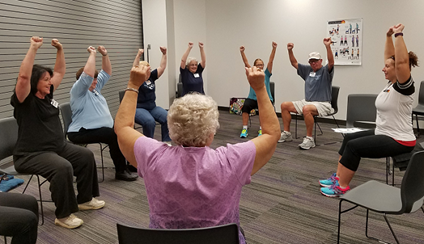
Outcomes
Evaluation results showed that participants improved agility, balance, upper and lower body flexibility and strength.
Here are a few of the success stories shared:
- One participant was a woman in her mid-30s with a muscle disorder. Her SSSH instructor encouraged her to try and do what she could. After successfully completing the class, she attended a doctor’s appointment. During her appointment, she could do things in her strength tests that she hadn't done before. Her doctor told her that he was impressed and that she should continue.
- Another participant reported: “Before taking this class, I was unable to sleep through the night without waking up with hip pain. Since participating in this program, I can now sleep through the night.”
- There was a summer-class participant who was due to have knee surgery in November. The surgeon she saw in July (while she was taking the class) couldn't believe she could still walk, let alone do squats. He was surprised at the work she was doing and told her he wished that more of his patients would participate in programs like Stay Strong, Stay Healthy.







